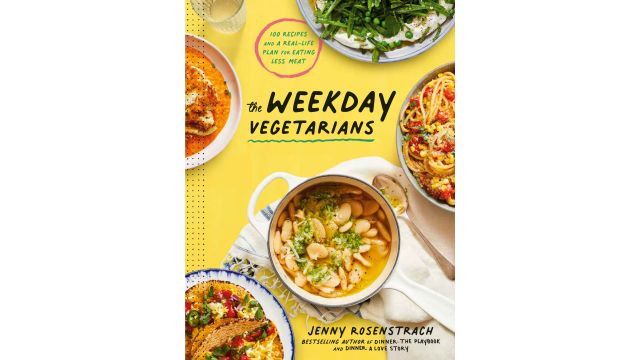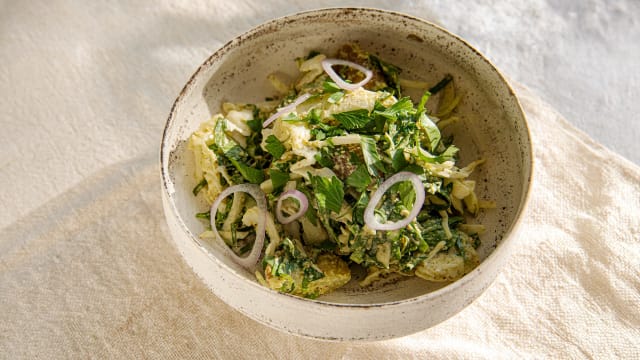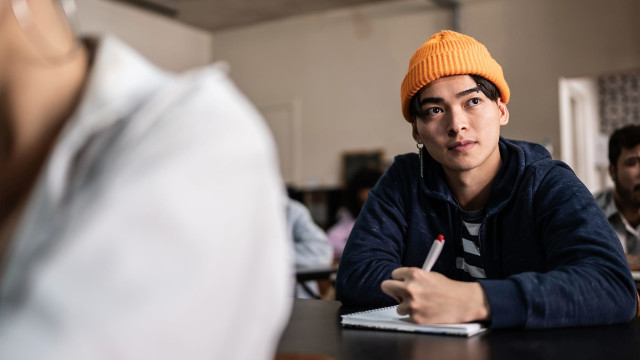Q&A with Jenny Rosenstrach

Jenny Rosenstrach is the proprietor of the award-winning website (and newsletter) Dinner: A Love Story and the bestselling author of Dinner, A Love Story; Dinner: The Playbook; How to Celebrate Everything; and The Weekday Vegetarians. She has built a large and loyal following with her useful recipes, accessible tone, and above all the way she centers love and generosity as essential to cooking and sharing food.
The Weekday Vegetarians recounts the climate and health-related decisions that led her and her family to eschew meat during the week, saving it for one or more weekend meals — and the ways in which she had to grow and learn as a cook to include many more plants, grains, and mushrooms as the main characters of meals, not just supporting players. All that research and cooking led to the recipes in the book, which is presented as a highly practicable solution for individuals and families looking to eat less meat but maybe not willing to fully abstain.
Besides the weekly newsletter and regular blogging, she is working on another book and will be leading a trip to Sicily next spring.
Roundglass Food: How do you see cooking for other people in terms of your personal wellbeing?
Jenny Rosenstrach: When I named my blog Dinner: A Love Story, I was really lucky, because it’s a name that has evolved as the kids have gotten older and my role has changed as a mother, a daughter, and a sister. I feel like dinner is a gift I give myself every day. I actually wake up excited to think about what we’ll have. Days are long, and can be a grind, so it’s so nice to know that at the end of every day I can make something delicious to feed the people I care about the most. I get so much emotional sustenance from the ritual. It’s not an act; it really is something I believe in.
When the girls went to college last year, everyone said “what’s going to happen to dinner?” but it’s remained as important as ever: still an anchor for the day. And I cook with my husband, so it still retains that glow of connecting, that emotional reward. My parents are aging; I recently had to go cook for my dad for a while. So there’s always someone to take care of.
RG Food: Was this spirit of nurturing through cooking something you grew up around?
JR: When I grew up, it wasn’t called “family dinner,” it was just called “dinner” because everyone ate together back then. It was such a part of my day that I didn’t realize how much I missed it until I was in my 20s and my life was all over the place. Something felt off if I didn’t take the time to sit down and have an intentional moment with my meal, even if I was alone, even before I knew the word “intentional.” I can’t get my head around people who don’t eat dinner, or who just have a bowl of cereal or something.
My mom cooked dinner every single night of my childhood. She’s Italian, and it was always something to look forward to. We all crowded around the table, and I remember those dinners so warmly. I knew that when I had my own family that I wanted to recreate it.
Instagram photo by Alexandra Stafford
RG Food: Did you have a vegetarian epiphany at some point?
JR: I had been trying to go more plant-based for so long, but it never seemed to be the right moment. I had a couple vegetarian meals in the rotation, but the ratio was all wrong; it was like one veg dinner for every six meat. But I started to see more vegetable-centric cookbooks, and then the 2016 election really changed something in me. I saw the way climate change was so ignored during those years, and I felt that as someone with a platform I needed to do something personally. And we know that the most important thing you can do on a personal level to combat climate change is to eat more of a plant-based diet.
So there was a gradual buildup, and then overnight it hit me like a lightning bolt. I texted my husband and said “should we go vegetarian? I think we should just do it.” We talked about it a bit, and settled on the idea of being weekday vegetarians. It turned out that it worked for us because it wasn’t so draconian. And it’s become an addictive way to cook and live. Someone commented on the blog that what we need in this country is not a few people eating no meat but lots of people eating less meat. I think that’s a great way to summarize the situation.
RG Food: What did you learn that really surprised you after you made the change?
JR: I was excited to learn how much I liked beans when I started buying good dried beans and preparing them properly. I always thought beans were okay, but now I really look forward to them. They’re wonderful.
RG Food: What’s your favorite vegetable memory?
JR: My mom’s zucchini was on the plate every night. She’d cut it into batons, dust it with flour, and sauté it in olive oil. Nobody in my family likes zucchini, so when I’m cooking solo I make it and it brings me right back to my childhood. Now I add garlic powder or other aromatics, but it’s basically the same.
RG Food: What should people eat more of?
JR: Cabbage is such a humble vegetable, but I just fell in love with it when I was researching The Weekday Vegetarians. My mind used to always go in a slaw direction, but then I learned how to roast it and braise it and unlock a lot more flavor. Plus, it doesn’t go bad! It lasts forever in the fridge, so it’s like a loyal friend who’s always there for you. And when you retrain your brain to see it as the center of the plate, it’s cool. It opens up a lot of doors.
I love napa cabbage shredded with rice noodles, where there’s as much cabbage as noodles. It’s such a good summer meal. The texture is great, and the flavor is too when you know how to bring it out. We put it on the grill so it gets tender inside and charred outside, and then serve a creamy dressing on top. I love it.
RG Food: Do you have any rituals in the kitchen when you start cooking?
JR: Not for cooking, no. But I’m very intentional about the setting of the table. I need placemats, I need cloth napkins, I need it to feel like this is not something that’s been thrown together. What calms me and makes me feel centered is having the sense that dinner is a gift, that it’s an occasion. That’s the cue for everyone to notice that someone spent time on this, that someone cares about them. There’s a quote I love: “Art is when something is more beautiful than it has to be.” I feel like creating a nice table isn’t something you have to do, but it makes your life a little better.
Key Takeaways
- Vegetarian meals are planet friendly.
- Add vegetarian meals weekly for better health.
- Vegetarian food is versatile and nutritious.





